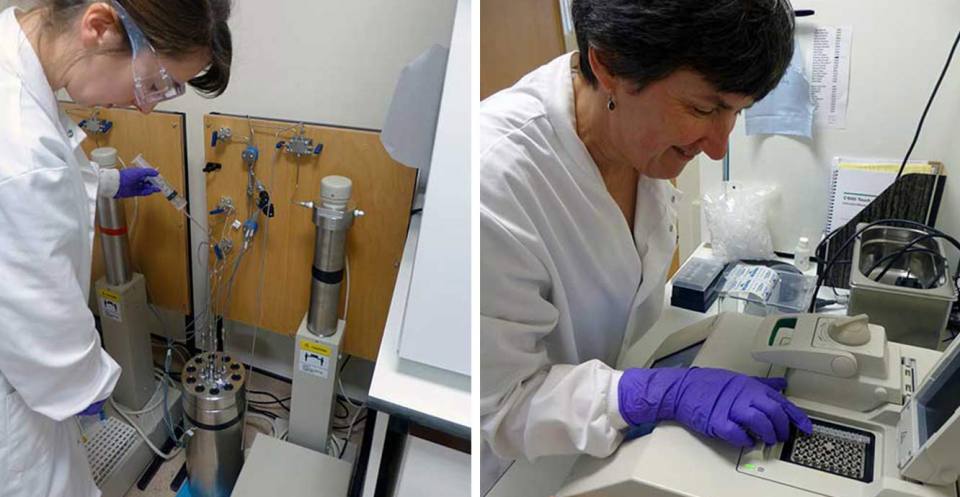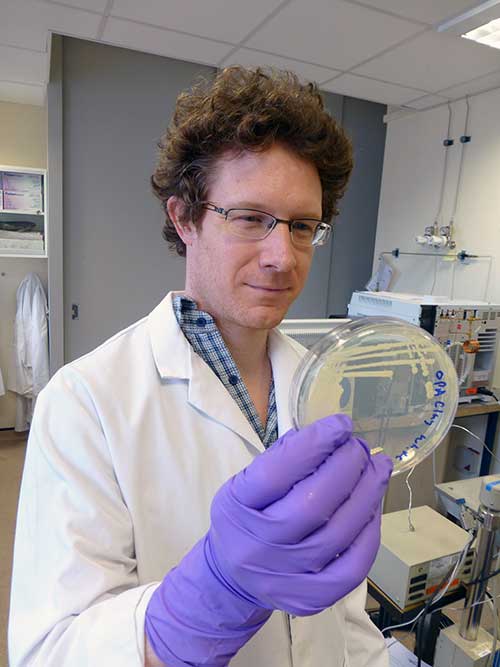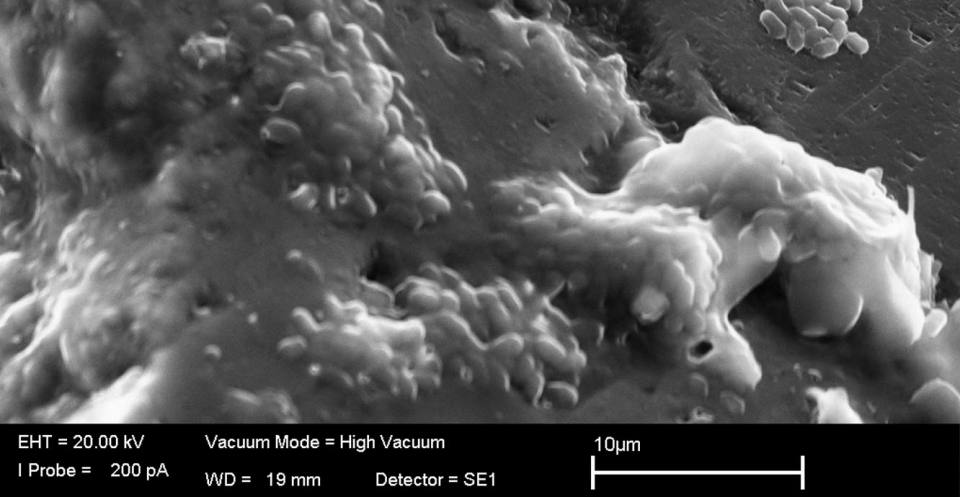Geomicrobiology research at the BGS is led by Simon Gregory and is carried out within the Fluid and Rock Processes Laboratory Cluster. Most of our work addresses issues relevant to decarbonisation and resource management, where we investigate microbiological processes associated with geological materials and how they impact the environment. Our particular interests lie in the positive or negative impact that microorganisms can have on subsurface industries.
Laboratory capability
The laboratory is well equipped for a wide range of culture-based microbial techniques as well as molecular microbiological methods. We have considerable experience in constructing and running experiments designed to replicate the pressures and temperatures found at depth in the subsurface.
Our facilities include:
- pressure vessels and pumps for running experiments at elevated pressures and temperatures
- a microaerophilic/anaerobic chamber for cultivation of oxygen-sensitive microorganisms
- FerMac 200 series modular bioreactor
- PCR, qPCR and nanopore sequencing facilities
- microplate reader used for growth and chemical assays
- range of programmable incubators (-10–70ºC)
Our work
Understanding the effect microbial activity could have in and around a geological disposal facility (GDF) for radioactive waste is important to ensure safe disposal. We are particularly interested in the interactions between microorganisms, groundwater and components of engineered barrier materials such as bentonite and steel.
There is evidence to show that certain types of microbial activity can increase metal corrosion and decrease the swelling capacity of bentonite, which could make it a less effective barrier to movement of groundwater or radioactive waste. We have a long-term experimental programme that tries to understand the activity of microorganisms in a GDF and how this might affect barrier material.
Our interest in carbon capture and storage (CCS) relates to the response of microorganisms to carbon dioxide (CO2), both in storage reservoirs and as a tool for monitoring leakage at the surface. We have been involved in studying microbial responses to elevated CO2 associated with natural CO2 seeps and experimental injections in both terrestrial and marine environments. We are continuing this work at the GeoEnergy Test Bed.
Microbial activity in CO2 injection wells may result in blockage through mineral precipitation or cause other unwanted geochemical reactions to take place in the reservoir. Current work focuses on understanding how impurities in the stored CO2 affect microbial activity.
Another area we work on is using microbes that precipitate carbonates to bioremediate existing hydrocarbon wells for CCS. This biotechnological precipitation has applications in sealing fractures and repairing damage in many other contexts as well as CCS.
CCS project websites:
Microorganisms that consume methane (CH4) respond rapidly to CH4 emissions. We are trying to understand the response of microbes that consume CH4 and other alkanes to determine whether they can be used to identify whether the CH4 is from biological or geological sources. The organisms capable of consuming alkanes may also display behaviours that are beneficial to the bioremediation of a vast number of contaminants, which we are beginning to explore.
- Turning Down the Gas methanotrophs in soils: what is the potential for microbial mitigation of methane leakage from soils?
- SECURe methanotrophs in groundwater
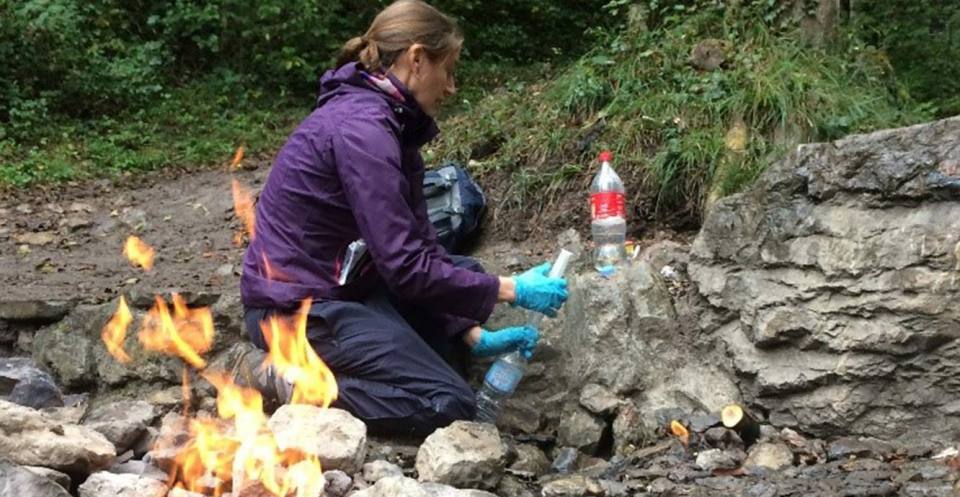
Microorganisms can be used to extract a range of metals from ores and may provide more sustainable mining techniques. Much of our research is targeted at understanding how microorganism can be harnessed to extract and separate rare earth elements, initially from ion adsorption clays. We are expanding our biomining research to other ores and other critical metals.
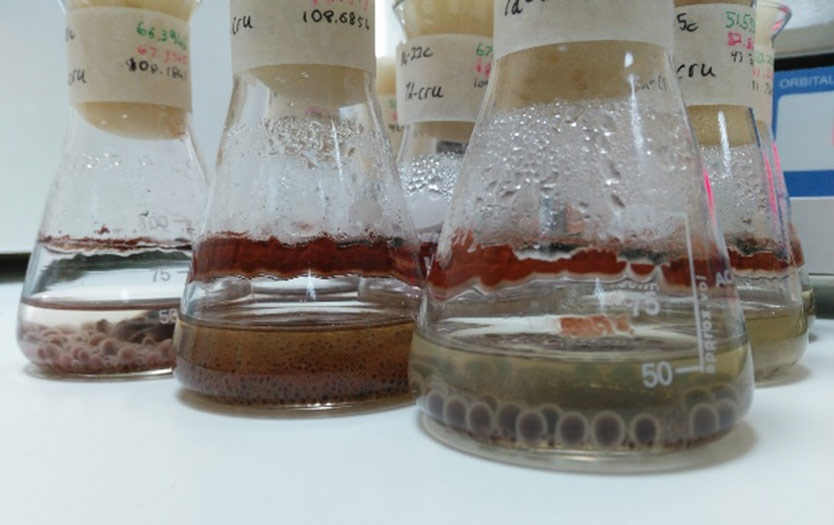
Other research
We are increasingly involved in other areas of BGS and external research, including:
- detection and enumeration of pathogens in groundwater
- microbiology of geothermal heating systems
- methanogenesis
- developing SEM based microbial imaging techniques
Need more information?
Relative topics
You may also be interested in
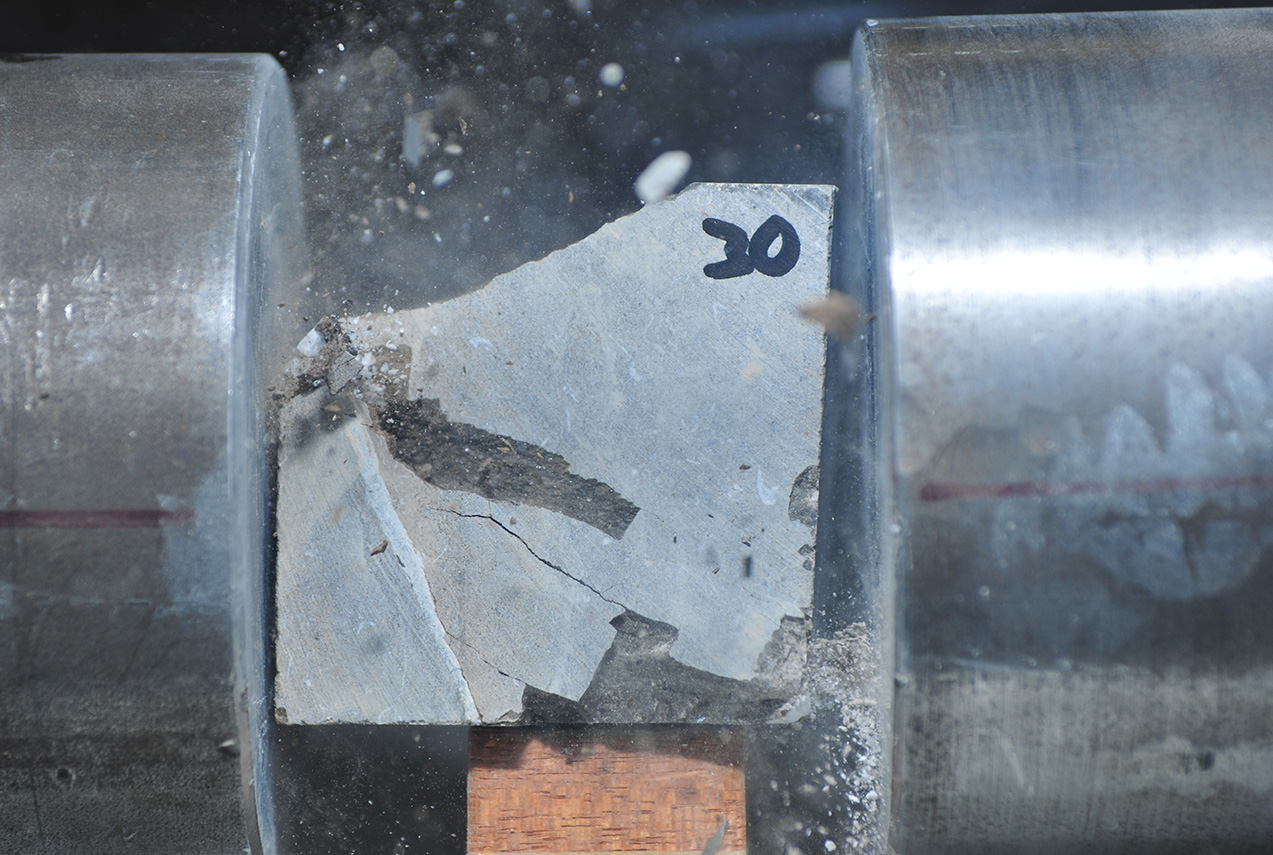
Science facilities
BGS operates and maintains a wide range of state-of-the-art laboratories and other facilities, which underpin virtually all of our research.
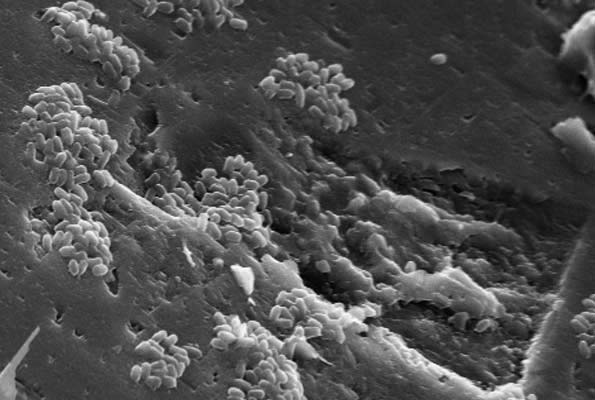
Fluid and Rock Processes Laboratory Cluster
Identifying, measuring and quantifying complex geological and environmental processes essential in the efficient utilisation of natural resources and underground spaces.


